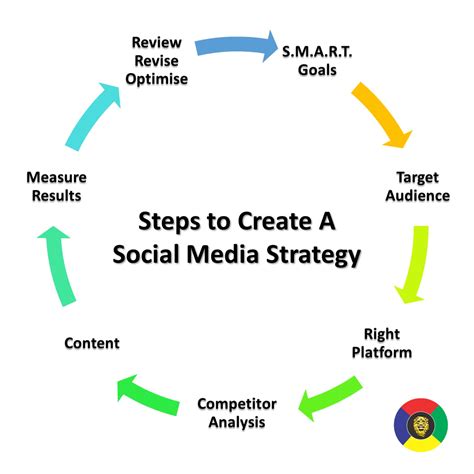Learn how to build a sustainable social media marketing strategy for 2024 by incorporating evolving trends, researching audience, implementing sustainable practices, and measuring campaign effectiveness. Adapt to algorithm changes effectively.In the fast-paced world of social media marketing, staying ahead of the curve is crucial for success. As we head into 2024, it’s more important than ever to build a sustainable social media marketing strategy that can adapt to evolving trends and algorithm changes. In this blog post, we will explore the key components of creating a sustainable social media marketing strategy for the year ahead. We’ll delve into the latest social media trends, the importance of researching and understanding your target audience, implementing sustainable practices, measuring campaign effectiveness, and adapting to algorithm changes. By the end of this post, you’ll have a clear understanding of what it takes to build a robust and sustainable social media marketing strategy that will set you up for success in 2024 and beyond. Let’s dive in and explore the future of social media marketing together.
Evolving Social Media Trends
In the ever-changing landscape of social media, it is crucial for businesses to stay updated on the latest social media trends in order to maintain a competitive edge. With platforms constantly introducing new features and algorithms, marketers must continuously adapt their strategies to keep up with the evolving trends.
One of the key trends in social media is the increasing popularity of video content. Platforms like TikTok and Instagram Reels have gained immense traction, and businesses are leveraging these platforms to connect with their audience in more interactive and engaging ways.
Another important trend to consider is the rise of social commerce. With features like Instagram Shopping and Facebook Marketplace, consumers are now able to make purchases directly through social media platforms, making it essential for businesses to integrate e-commerce seamlessly into their social media strategies.
Furthermore, the growing emphasis on authenticity and personalization in social media content is a trend that cannot be ignored. With users seeking more genuine and relatable content, businesses need to humanize their brand and create meaningful connections with their audience.
Researching Target Audience
When it comes to building a sustainable social media marketing strategy for 2024, one of the most crucial aspects is researching your target audience. This involves delving deep into the demographics, behaviors, interests, and preferences of the people you want to reach through your social media campaigns. By understanding who your audience is, you can tailor your content and messaging to resonate with them on a deeper level.
In order to effectively research your target audience, it’s important to utilize a variety of methods. This includes analyzing data from your existing customer base, conducting surveys and interviews, and utilizing social media analytics tools to gain insights into the demographics and psychographics of your audience. By gathering as much information as possible, you can create detailed buyer personas that will guide your social media marketing efforts.
In addition to demographic and psychographic information, it’s also essential to understand the online behaviors of your target audience. This includes knowing which social media platforms they frequent, what type of content they engage with, and how they prefer to interact with brands online. By understanding these behaviors, you can effectively reach your audience where they are most active and tailor your content to meet their preferences.
Furthermore, ongoing research into your target audience is crucial for ensuring the sustainability of your social media marketing strategy. As consumer behaviors and preferences evolve over time, it’s important to stay updated on these changes and adjust your approach accordingly. By continually researching and understanding your target audience, you can adapt to shifting trends and maintain the effectiveness of your social media campaigns in the long run.
Implementing Sustainable Practices
Implementing sustainable practices in your social media marketing strategy is essential for creating a positive impact on the environment and your bottom line. One way to do this is by reducing the use of single-use plastics and paper materials in your marketing campaigns. By opting for digital promotions, you can significantly decrease your carbon footprint and contribute to a more sustainable future.
Another important practice is to research and partner with eco-friendly suppliers and vendors for your marketing materials. Look for companies that use recyclable or biodegradable materials in their products, and prioritize working with them. This not only reduces the environmental impact of your marketing efforts, but also supports businesses that share your commitment to sustainability.
Setting targets and goals for reducing waste and energy consumption in your social media marketing operations can also make a difference. Consider implementing a waste reduction plan, investing in energy-efficient equipment, and encouraging your team to adopt sustainable practices in their daily work routines. By measuring and monitoring your progress, you can continually improve and adjust your sustainability efforts for maximum impact.
Finally, consider collaborating with environmental organizations or initiatives to support sustainable causes through your social media platforms. By using your influence and reach to raise awareness and funds for environmental projects, you can further demonstrate your commitment to sustainability while engaging your audience in meaningful ways.
Measuring Campaign Effectiveness
Measuring the effectiveness of your marketing campaigns is crucial for determining the success of your efforts and optimizing future strategies. With the ever-evolving landscape of social media, it’s important to stay up to date with the latest tools and techniques for measuring campaign performance. From analyzing engagement metrics to tracking conversions, there are various ways to evaluate the impact of your marketing initiatives.
One effective method for measuring campaign effectiveness is to use Key Performance Indicators (KPIs) that are specific to your goals. Whether your objective is to increase brand awareness, drive website traffic, or generate leads, defining and tracking relevant KPIs can provide valuable insights into the performance of your campaigns. By setting clear benchmarks and regularly monitoring KPIs, you can make data-driven decisions to enhance your social media marketing strategy.
In addition to KPIs, utilizing analytics platforms such as Google Analytics or social media insights tools can offer comprehensive data on campaign performance. These tools can provide detailed reports on user behavior, audience demographics, and content interactions, allowing you to gain a deeper understanding of the effectiveness of your marketing efforts. By leveraging the insights provided by these platforms, you can identify areas for improvement and refine your campaigns for better results.
Furthermore, implementing A/B testing and experiments can help you assess the impact of different campaign elements, such as ad creatives, messaging, or targeting criteria. By conducting controlled experiments and comparing the performance of various campaign variations, you can determine which strategies resonate most with your target audience and contribute to your overall marketing objectives. A data-driven approach to measuring campaign effectiveness allows for continuous optimization and refinement, ensuring that your social media marketing efforts remain impactful and sustainable in the long run.
Adapting to Algorithm Changes
As social media platforms continue to evolve, so do their algorithms. It is crucial for businesses to stay up-to-date with these changes in order to maintain visibility and engagement with their target audience. Adapting to algorithm changes is an essential part of any successful social media marketing strategy.
Researching target audience and understanding their behavior and preferences is the first step in adapting to algorithm changes. By analyzing the data provided by the platforms, businesses can gain insights into what content is most effective and how to best reach their audience.
Implementing sustainable practices in social media marketing is also key when adapting to algorithm changes. This involves creating high-quality, relevant content that resonates with the audience, rather than trying to manipulate the algorithms through tactics that may be deemed as spammy or disingenuous.
Measuring campaign effectiveness is another important aspect of adapting to algorithm changes. By analyzing the success of past campaigns and using data-driven insights to adjust future strategies, businesses can ensure that they are staying ahead of the curve and optimizing their content for the latest algorithm updates.
Frequently Asked Questions
What are the key elements of a sustainable social media marketing strategy?
Key elements include defining clear goals, identifying target audience, creating valuable content, engaging with followers, and analyzing performance metrics.
How can businesses incorporate sustainability into their social media marketing strategy?
Businesses can incorporate sustainability by promoting eco-friendly products, supporting social causes, and reducing their carbon footprint through digital initiatives.
What are some emerging trends in social media marketing for 2024?
Some emerging trends include the rise of video content, the importance of social commerce, the impact of augmented reality, and the use of AI for personalized marketing.
How can businesses measure the effectiveness of their social media marketing strategy?
Businesses can measure effectiveness through metrics such as engagement rate, conversion rate, customer acquisition cost, and return on investment (ROI).
What role does storytelling play in a sustainable social media marketing strategy?
Storytelling helps humanize the brand, build emotional connections with the audience, and communicate the brand’s values and sustainability initiatives.
Why is it important for businesses to adapt their social media marketing strategy for sustainability?
Adapting the strategy for sustainability can help businesses build a positive brand image, attract environmentally conscious consumers, and contribute to social and environmental good.
How can businesses ensure long-term success with their social media marketing strategy?
Businesses can ensure long-term success by staying updated on trends, adapting to changes in algorithms, prioritizing authenticity, and fostering meaningful relationships with their audience.



